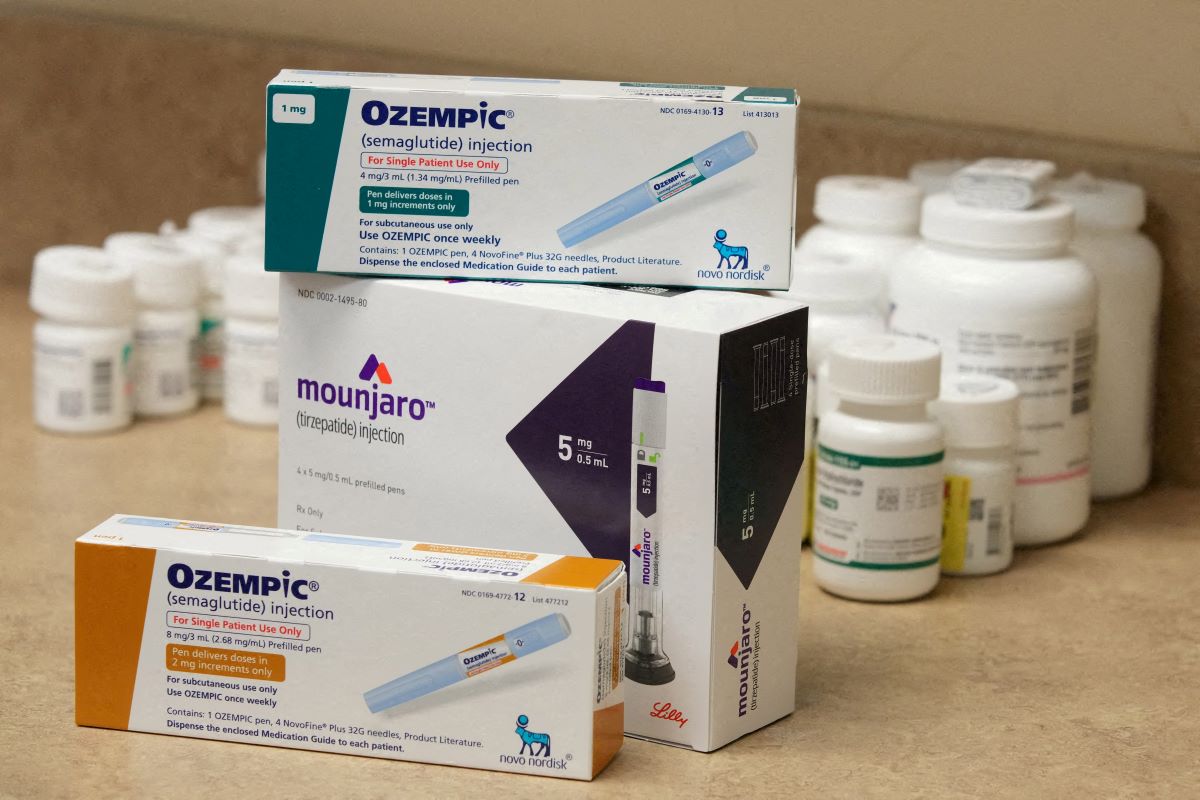A new study has found that individuals taking the key ingredient in the popular weight loss drugs Ozempic and Wegovy were less likely to die from Covid-19 or experience severe complications related to the virus.
The study revealed that people who were already on a 2.4 mg dose of semaglutide — the active compound in Novo Nordisk’s Ozempic and Wegovy — could still contract Covid-19, but their chances of dying from the illness were reduced by 33%.
The papers also suggest that semaglutide may offer a broader range of health benefits beyond the previously recognized reduction in the risk of serious cardiovascular events like heart attacks and strokes.
In a JACC interview, co-author Benjamin Scirica noted that his study’s participants who received semaglutide experienced a 29% decrease in deaths from non-cardiovascular causes, with weight not being a significant factor in these outcomes.
The extensive study, which began before the pandemic and continued throughout, involved over 17,600 overweight or obese individuals with heart conditions, excluding those with diabetes.
Additional studies published by JACC on Friday highlighted that semaglutide improved symptoms related to heart failure, reduced inflammation, and enhanced various other bodily functions.
It also lowered mortality rates among patients with chronic kidney disease.

These findings are expected to further boost Novo Nordisk, the manufacturer of Ozempic, which has seen its market value soar due to the success of semaglutide-based treatments.
The pharmaceutical giant has now become Europe’s most valuable company, despite fierce global competition in the weight loss market, particularly from U.S. company Eli Lilly and other emerging rivals.
The discovery of new benefits associated with semaglutide could potentially expand its applications in medical treatments.
Discussing the recent findings, Harlan Krumholz, a professor at Yale University School of Medicine and editor at JACC, remarked in a JACC interview, “I begin to think about the weight loss almost as a side effect. These [drugs] are really promoting health.”
He continued, “Initially, I was focused on cardiometabolic health, but it seems there might be multiple mechanisms through which [semaglutide] is improving our health, including possibly helping us resist the adverse effects of the pandemic.”
However, Krumholz emphasized the need for further research into the full impact of semaglutide. It’s important to note that not all side effects of weight loss drugs have been positive.
For instance, a study conducted by Harvard Medical School earlier this year found that such medications might be linked to an increased risk of a rare eye disease.
